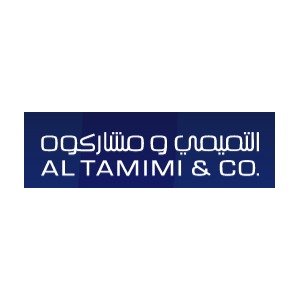Best Acquisition / Leveraged Finance Lawyers in Riyadh
Share your needs with us, get contacted by law firms.
Free. Takes 2 min.
List of the best lawyers in Riyadh, Saudi Arabia
About Acquisition / Leveraged Finance Law in Riyadh, Saudi Arabia
Acquisition and leveraged finance law in Riyadh refers to the legal framework that governs how companies and investors fund the purchase of other businesses or assets, often using significant amounts of borrowed money. This area of law intersects with banking regulations, corporate structures, and Saudi-specific financial compliance. Riyadh, as the capital of Saudi Arabia and a major financial center in the region, regularly sees merger and acquisition transactions involving Saudi entities or assets. The legal landscape is shaped by both Islamic finance principles (Shariah law) and Saudi regulations, creating unique complexities and requirements for any acquisition or leveraged finance deal.
Why You May Need a Lawyer
Engaging a lawyer is crucial in acquisition and leveraged finance transactions, which are often complex, high-value, and high-risk. Common situations that require legal assistance include:
- Structuring and negotiating acquisition financing or leveraged buyouts - Ensuring compliance with Saudi Central Bank and Capital Market Authority guidelines - Drafting and reviewing facility agreements, security documents, and intercreditor arrangements - Identifying and managing risks related to regulatory approvals, foreign investment restrictions, and anti-money laundering rules - Addressing Shariah compliance in financing structures - Advising on collateral and enforcement rights - Conducting legal due diligence before major transactions - Navigating disputes or restructuring issues arising out of acquisition finance deals - Assisting with cross-border transactions involving Riyadh-based companies or assets - Providing guidance for both borrowers (companies) and lenders (banks, financial institutions)
Local Laws Overview
The regulatory and legal environment for acquisition and leveraged finance in Riyadh is shaped by several key Saudi laws and governmental bodies:
- Shariah Law (Islamic Law): All financial transactions must comply with Shariah principles, affecting the permissibility and structure of lending arrangements, the prohibition of conventional interest (riba), and requirements for profit-sharing or asset-backed financing.
- Companies Law: This law governs how companies can merge, be acquired, or acquire assets, and sets out the required corporate approvals and procedures, including for foreign ownership.
- Banking and Finance Regulations: The Saudi Central Bank and Capital Market Authority regulate lenders, ensuring proper licensing, capital requirements, conduct rules, and consumer protection.
- Secured Transactions Law: This law sets out how security interests (pledges, mortgages, guarantees) can be created and enforced, as well as their priority.
- Foreign Investment Regulations: The Ministry of Investment (MISA) oversees approvals and requirements applicable to foreign participants in acquisition deals.
- Bankruptcy Law: This provides restructuring, insolvency, and creditor protection tools relevant for distressed leveraged transactions.
Compliance with all these legal requirements is essential, as non-compliance can derail a transaction or give rise to significant legal and financial risks.
Frequently Asked Questions
What is leveraged finance?
Leveraged finance involves borrowing funds to acquire a company or an asset, often using the acquired asset itself as collateral.
Are conventional interest-based loans allowed in Saudi Arabia?
No, conventional interest-based loans (riba) are not allowed under Shariah law. Loans must be structured using Shariah-compliant mechanisms such as Murabaha, Ijara, or Mudaraba.
Can foreign investors participate in acquisition finance deals in Riyadh?
Yes, but they must comply with foreign investment regulations, obtain necessary approvals from MISA, and comply with sector-specific restrictions.
What documentation is typically required for an acquisition finance transaction?
Common documents include facility agreements, security documents, intercreditor agreements, legal opinions, and corporate approvals.
How is security for loans created and enforced?
Security is created through legal documents such as pledges or mortgages, and is registered with relevant authorities. Enforcement complies with Saudi law and court procedures.
Are acquisitions in Saudi Arabia subject to regulatory approvals?
Most major acquisitions require regulatory approval, especially in sectors regulated by the Saudi Central Bank, Capital Market Authority, or for foreign investment.
What are the typical legal risks in leveraged finance?
Risks include regulatory non-compliance, unenforceable security, Shariah breaches, foreign exchange controls, and insolvency of the borrower or target.
Are there restrictions on the types of assets that can be pledged as collateral?
Yes, some asset types such as shares, real estate, or future receivables have specific requirements, and Shariah principles may further limit certain types of security.
What happens if the borrower defaults on an acquisition loan?
The lender can enforce security subject to Saudi enforcement procedures, which may involve court action, insolvency proceedings, or restructuring negotiations.
How important is Shariah compliance in acquisition finance?
Critical. Transactions must align with Shariah, affecting structure and documentation. Non-compliance can render contracts unenforceable.
Additional Resources
- Saudi Central Bank (SAMA): Regulator for banking and financial institutions - Capital Market Authority (CMA): Regulates capital markets and securities offerings - Ministry of Investment (MISA): Oversees foreign investment approvals - Saudi Arabian General Investment Authority (SAGIA): Guidance for foreign investors - Saudi Ministry of Commerce: Incorporation and corporate governance - Local law firms specializing in acquisition and finance law
Next Steps
If you are considering or involved in an acquisition or leveraged finance transaction in Riyadh, it is important to take the following steps:
- Consult a qualified legal professional with experience in Saudi acquisition and leveraged finance - Gather all relevant transaction details and documentation - Seek early advice on structuring deals to ensure Shariah and regulatory compliance - Request a legal due diligence review - Discuss potential risks and mitigation strategies with your lawyer - Stay updated on local regulations and any sector-specific requirements - Work closely with your legal advisor throughout negotiations, documentation, and closing - If foreign investment is involved, coordinate with MISA and obtain the required approvals - Engage advisors early to anticipate and resolve possible challenges, ensuring a timely and compliant transaction process
Proper legal support is key to a successful, compliant, and efficient acquisition or leveraged finance transaction in Riyadh, Saudi Arabia.
Lawzana helps you find the best lawyers and law firms in Riyadh through a curated and pre-screened list of qualified legal professionals. Our platform offers rankings and detailed profiles of attorneys and law firms, allowing you to compare based on practice areas, including Acquisition / Leveraged Finance, experience, and client feedback.
Each profile includes a description of the firm's areas of practice, client reviews, team members and partners, year of establishment, spoken languages, office locations, contact information, social media presence, and any published articles or resources. Most firms on our platform speak English and are experienced in both local and international legal matters.
Get a quote from top-rated law firms in Riyadh, Saudi Arabia — quickly, securely, and without unnecessary hassle.
Disclaimer:
The information provided on this page is for general informational purposes only and does not constitute legal advice. While we strive to ensure the accuracy and relevance of the content, legal information may change over time, and interpretations of the law can vary. You should always consult with a qualified legal professional for advice specific to your situation.
We disclaim all liability for actions taken or not taken based on the content of this page. If you believe any information is incorrect or outdated, please contact us, and we will review and update it where appropriate.

















